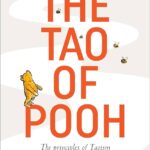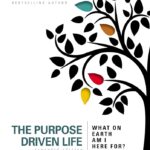Welcome to Thinkers Books, your intellectual companion on the journey through the world’s most enlightening literature. Today, we delve into a book that challenges traditional paradigms of health and nutrition – ‘The Plant Paradox’ by Dr. Steven Gundry.
Dr. Steven Gundry, an innovative cardiologist and trailblazer in nutrition, presents a unique perspective in ‘The Plant Paradox.’ He boldly suggests that certain plants, which we’ve long considered as pillars of a healthy diet, might be contributing to various health issues due to proteins they contain, called lectins.
‘The Plant Paradox’ opens with a comprehensive introduction to what lectins are – proteins found in many plant foods. Far from being benign, Dr. Gundry explains that these are part of a plant’s defence mechanism against predators, including humans. The book delves into the impact of a lectin-rich diet on human health, illustrated with numerous case studies showing dramatic health improvements in patients who switched to a lectin-free diet.
In the concluding section, Dr. Gundry offers practical advice on adopting a lectin-free lifestyle. From meal plans and recipes to shopping lists and preparation tips, he provides a roadmap to navigate this uncharted dietary territory.
Let’s delve deeper into the top five takeaways from ‘The Plant Paradox.’
- Not All Plants Are Equal: Dr. Gundry’s book serves as a wake-up call that not all plants are created equal regarding our health. He pinpoints grains and legumes as culprits, which we’ve long considered staples of a healthy diet. These foods contain high lectins – proteins that can trigger inflammatory responses.
- Benefits of a Lectin-free Lifestyle: The book underscores the potential health benefits of adopting a lectin-free lifestyle. Patients with various health issues ranging from obesity to autoimmune disorders experienced significant improvements after eliminating lectins from their diet.
- Role of Gut Health: Dr. Gundry goes beyond dietary changes. He emphasises the crucial role of gut health in our overall wellness. Dr Gundry provides practical advice on nurturing a healthy microbiome by recommending specific supplements and probiotics.
- Importance of Cooking Methods: The book highlights how cooking can significantly affect lectin levels in food. For instance, pressure cooking can deactivate harmful lectins, rendering them safe to consume. This encourages us to be mindful of our cooking practices.
- Change is a Process: Dr. Gundry reminds us that change is a process, not an event. Adopting a lectin-free diet requires patience, commitment, and a willingness to experiment with new foods and recipes.
‘The Plant Paradox’ disrupts conventional nutritional wisdom, making it a groundbreaking contribution to the field. Its strength lies in its evidence-based approach, combining scientific research with real-world case studies. On a personal note, I found the book to be a revelation. It forced me to reevaluate my dietary choices and consider how my food impacts my health.
As we conclude our exploration of ‘The Plant Paradox’, I invite you to delve further into the world of insightful summaries offered by Thinkers Books. Remember, knowledge is power, but the application of knowledge truly empowers us. Let’s strive to make healthier choices, one meal at a time. Until our next intellectual adventure, keep thinking, learning, and growing!







